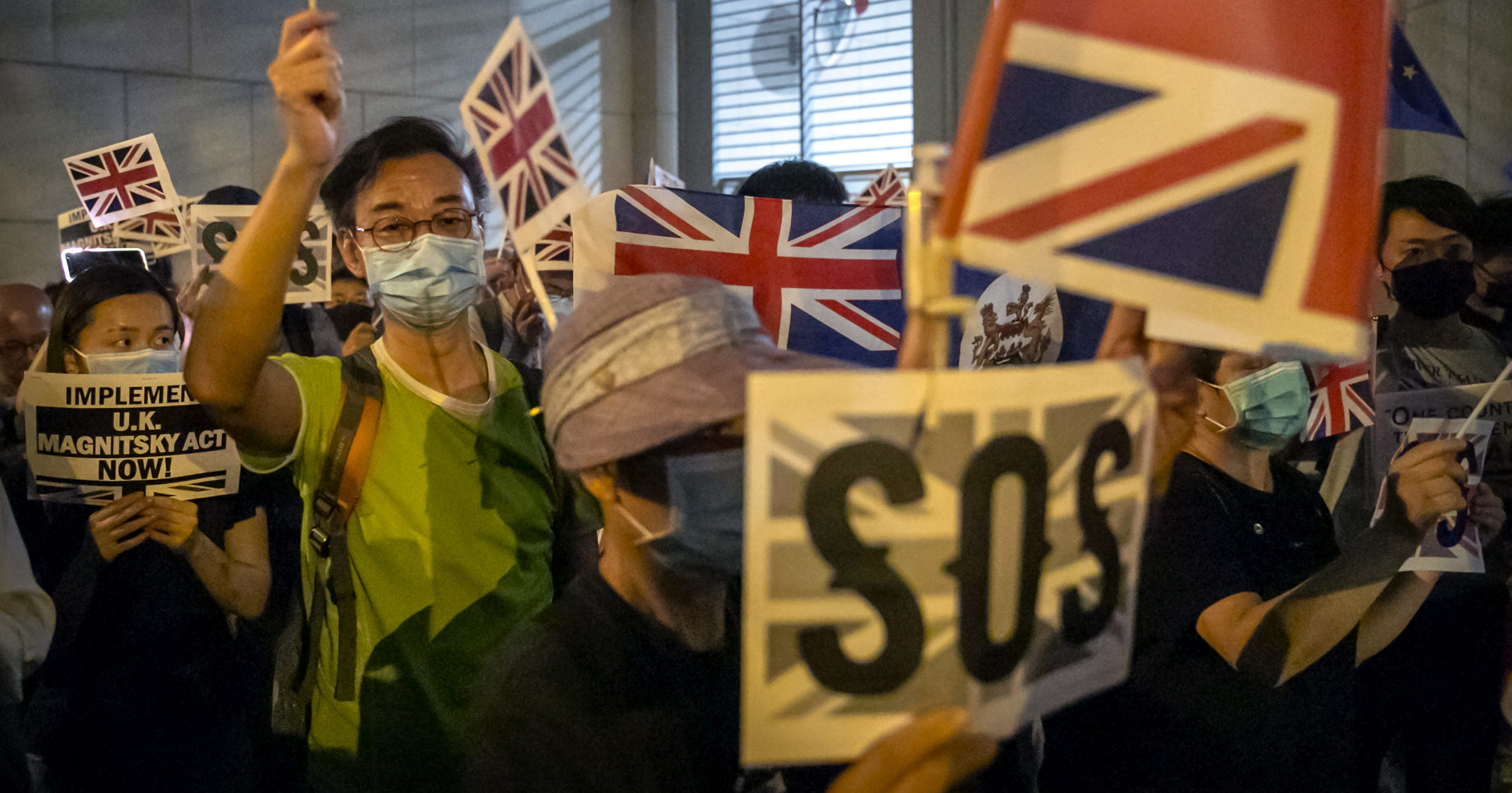
Outrage in West as China Stifles Free Speech in Hong Kong
From Tokyo to Brussels, political leaders have swiftly decried Beijing’s move to impose a tough national security law on Hong Kong that cracks down on anti-government activity and protest in the semi-autonomous territory.
For people in Hong Kong, the question is: Will international anger and statements of concern make any difference?
Individual countries have little leverage over Beijing on human rights, experts say. A joint effort could make a difference, but coordinated action seems unlikely.
“The U.S.A. and EU are moving in different directions in many areas. It is perhaps to China’s advantage that that should be so,” according to Rod Wye, an associate fellow at the Chatham House think tank in London.
In particular, Europeans do not want to be drawn into a U.S.-China trade war, he said.
“Expressions of concern are certainly not going to change the Chinese intention one little bit,” he added.
A joint U.S.-European report released this week on relations with China described “a deep sense of frustration, fatigue, and futility. The stronger China gets, the less willing it has become to even engage perfunctorily with the West on the issue.”
The report — from the Asia Society, the Bertelsmann Stiftung and George Washington University — said that concern about human rights abuses in China remains deep, from the new security law in Hong Kong, which went into effect on Tuesday night, to the repression of Muslim minorities in the Xinjiang region in western China.
China routinely dismisses all such criticism as interference in its domestic affairs. The Hong Kong security law explicitly outlaws receiving funding or support from overseas to disrupt lawmaking in Hong Kong or impose sanctions on the city.
“This issue is purely China’s internal affairs, and no foreign country has the right to interfere,” Chinese Foreign Ministry spokesperson Zhao Lijian said.
Many fear the law will be used to curb opposition voices and see it as Beijing’s boldest move yet to erase the legal firewall between the mainland’s Communist Party system and Hong Kong, which was promised a high degree of autonomy and civil liberties under a “one country, two systems” principle.
Britain called the law “deeply troubling” and said it “lies in direct conflict with China’s international obligations.”
The U.S. warned that China’s repeated violations of its international commitments “is a pattern the world cannot ignore.”
And the European Union warned that China risked “very negative consequences” to its reputation and to business confidence in the global financial hub.
Chinese experts said the West isn’t able to sway China because of fundamental differences in their views.
The West stresses political rights, while China emphasizes economic rights, according to Yu Wanli, an international relations professor at Beijing Language and Culture University.
“It is not that China is trying to withstand pressure from the West, but it is that China’s own policies have achieved results,” Yu said. “China doesn’t need to care about pressure from the West.”
Britain on Wednesday announced it is extending residency rights for up to 3 million Hong Kong citizens eligible for British National Overseas passports, allowing them to live and work in the U.K. for five years.
In Brussels, the European Parliament last month passed a resolution calling on the EU to consider taking Beijing to the International Court of Justice.
Reinhard Bütikofer, chair of the European Parliament’s delegation for China relations, said lawmakers are considering other measures, such as a ban on exports of “technology utilized to oppress Hong Kong citizens.”
Other options include a “lifeboat” offer for Hong Kong democracy activists and pushing for the United Nations to appoint a special envoy to the city.
In the U.S., the Trump administration has said it will bar defense exports to Hong Kong, cancel policy exemptions that give Hong Kong special treatment, and impose visa restrictions on Chinese Communist Party officials “responsible for undermining Hong Kong’s autonomy.”
Zhao, the foreign ministry spokesperson, said the U.S. will never succeed in blocking Hong Kong’s national security legislation through sanctions.
Wye, the Chatham House associate fellow, said the impact of such measures on China is likely to be marginal.
“I don’t think Beijing has anything particular to fear because the sanctions they’re talking about are mainly withdrawing special status in particular areas of Hong Kong and treating it more like the rest of China,” he said.
“So the people likely to be hurt are Hong Kong businesses and Hong Kong people rather than Chinese businesses and the Chinese government.”
The Western Journal has reviewed this Associated Press story and may have altered it prior to publication to ensure that it meets our editorial standards.
Truth and Accuracy
We are committed to truth and accuracy in all of our journalism. Read our editorial standards.
Advertise with The Western Journal and reach millions of highly engaged readers, while supporting our work. Advertise Today.












